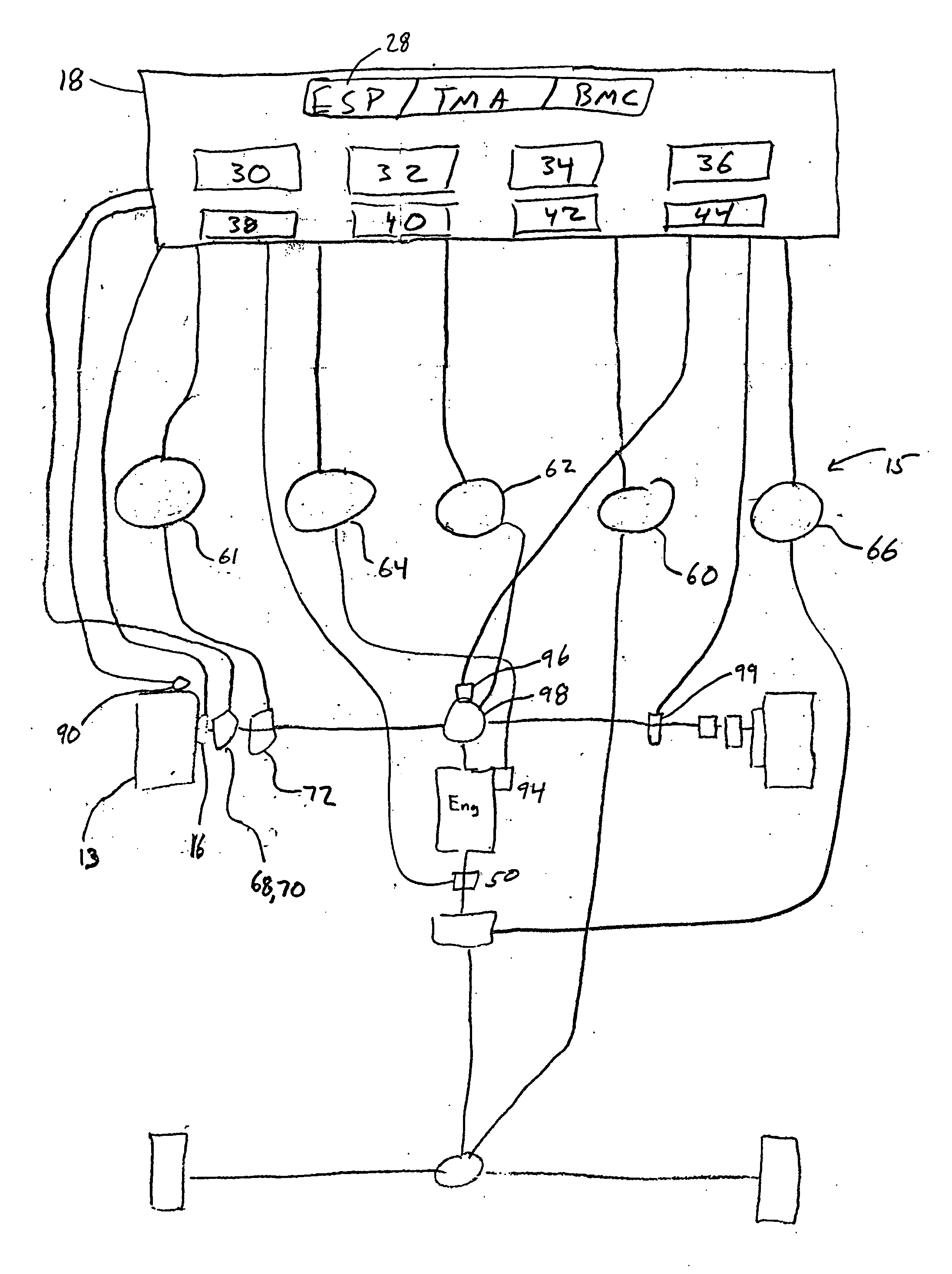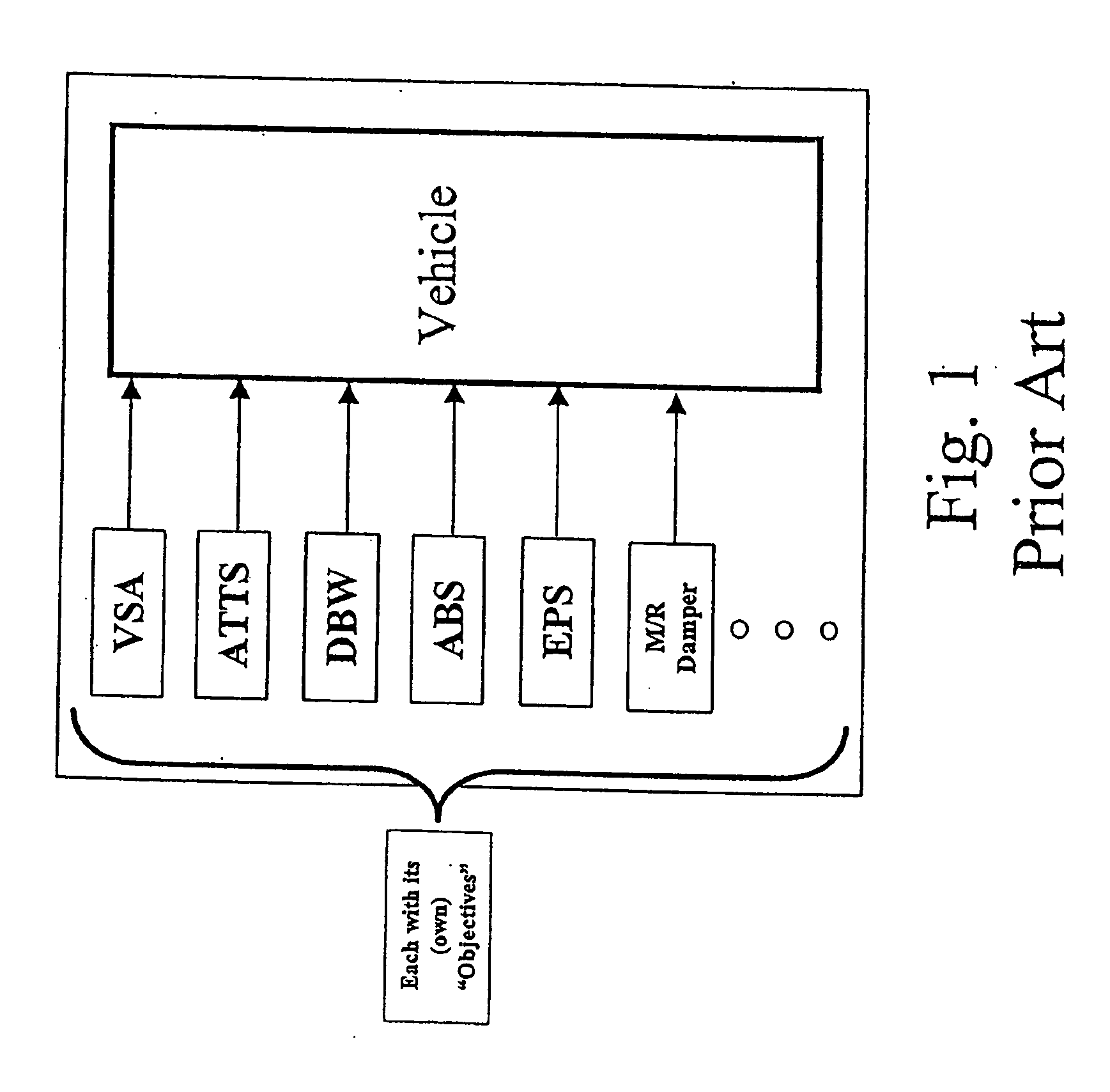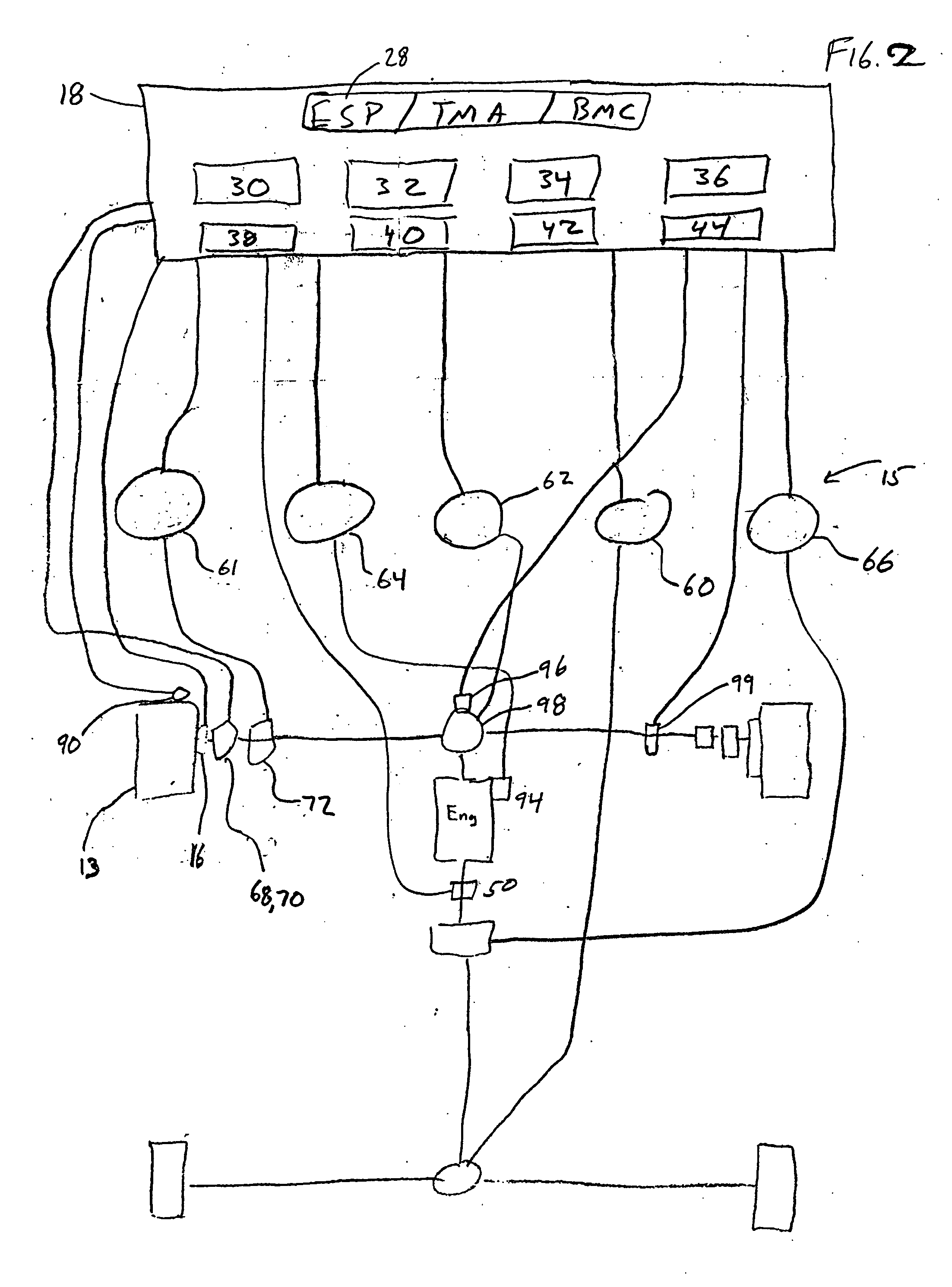Cooperative vehicle control system
a vehicle control system and cooperative technology, applied in vehicle position/course/altitude control, process and machine control, instruments, etc., can solve problems such as interference, interference, and interference, and achieve the effect of determining the potential effectiveness of each subsystem control uni
- Summary
- Abstract
- Description
- Claims
- Application Information
AI Technical Summary
Benefits of technology
Problems solved by technology
Method used
Image
Examples
Embodiment Construction
[0011] Referring to FIG. 3, an overall vehicle control system 10 is provided that uses the vehicle driver's initial commands and through various subsystems and feedback from subsystem output and sensor data provides superior vehicle control. Sensors 12 provide information regarding the vehicle's operative state. The vehicle control system 10 includes a set of driver generated control inputs 16, a high level controller (HLC) 18, and one or more sub-algorithms. The sub-algorithms are operable, in response to sensed conditions and user input, to actuate slave control units 15. The slave control units 15, which receive signals from a series of sensors 12 and interact with series of actuators 14, respond to the actuation of the control algorithms. The high level controller (main ECU) 18 may incorporate one or more algorithms utilizing feed-forward control to calculate control inputs for various subsystems. Some algorithms are designed to anticipate control situations, and conflicts. This...
PUM
 Login to View More
Login to View More Abstract
Description
Claims
Application Information
 Login to View More
Login to View More - R&D
- Intellectual Property
- Life Sciences
- Materials
- Tech Scout
- Unparalleled Data Quality
- Higher Quality Content
- 60% Fewer Hallucinations
Browse by: Latest US Patents, China's latest patents, Technical Efficacy Thesaurus, Application Domain, Technology Topic, Popular Technical Reports.
© 2025 PatSnap. All rights reserved.Legal|Privacy policy|Modern Slavery Act Transparency Statement|Sitemap|About US| Contact US: help@patsnap.com



